Bulbs
Flower Basics
Flower Beds & Specialty Gardens
Flower Garden
Garden Furniture
Garden Gnomes
Garden Seeds
Garden Sheds
Garden Statues
Garden Tools & Supplies
Gardening Basics
Green & Organic
Groundcovers & Vines
Growing Annuals
Growing Basil
Growing Beans
Growing Berries
Growing Blueberries
Growing Cactus
Growing Corn
Growing Cotton
Growing Edibles
Growing Flowers
Growing Garlic
Growing Grapes
Growing Grass
Growing Herbs
Growing Jasmine
Growing Mint
Growing Mushrooms
Orchids
Growing Peanuts
Growing Perennials
Growing Plants
Growing Rosemary
Growing Roses
Growing Strawberries
Growing Sunflowers
Growing Thyme
Growing Tomatoes
Growing Tulips
Growing Vegetables
Herb Basics
Herb Garden
Indoor Growing
Landscaping Basics
Landscaping Patios
Landscaping Plants
Landscaping Shrubs
Landscaping Trees
Landscaping Walks & Pathways
Lawn Basics
Lawn Maintenance
Lawn Mowers
Lawn Ornaments
Lawn Planting
Lawn Tools
Outdoor Growing
Overall Landscape Planning
Pests, Weeds & Problems
Plant Basics
Rock Garden
Rose Garden
Shrubs
Soil
Specialty Gardens
Trees
Vegetable Garden
Yard Maintenance
How to Prune Dwarf Fruit Trees
How to Prune Dwarf Fruit Trees. It used to be that in order to grow an apple or pear or peach tree, you had to have a big yard and lots of cleared space. Dwarf varieties have opened the possibility of growing fruit trees on patios and even balconies. Pruning is key for these little trees to keep them from being overburdened with heavy fruit. With a...
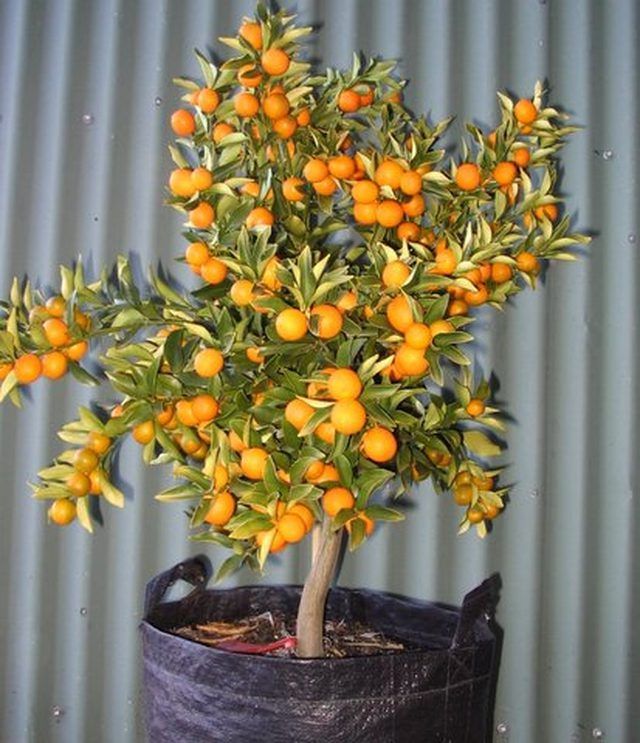
It used to be that in order to grow an apple or pear or peach tree, you had to have a big yard and lots of cleared space. Dwarf varieties have opened the possibility of growing fruit trees on patios and even balconies. Pruning is key for these little trees to keep them from being overburdened with heavy fruit. With a little foresight and care, you can have a fruit tree that will give you beautiful fresh fruit right in your own small space.
Look at how the tree is pruned. most dwarf trees are usually pruned in a cone shape. If the tree has been trained to grow along a fence as an espalier, you'll need a different method of pruning than these steps (see Resources).
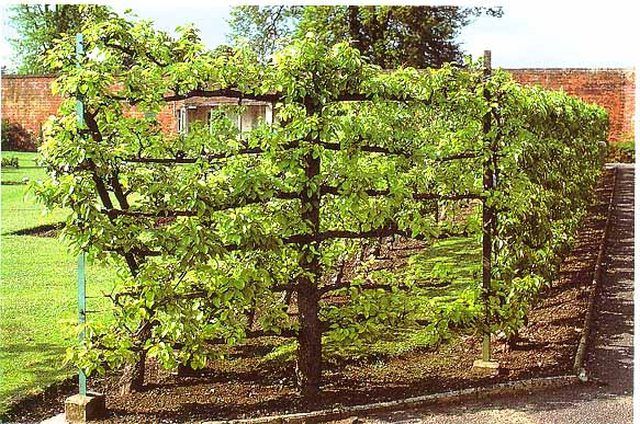
Normally, you prune fruit trees to form an open center or to form a cone shape. With dwarf fruit trees, you need to take care not to let the branches get too long as they cannot hold the weight and will end up splitting. Dwarf apples are an example of a tree that gardeners often prune into a cone shape. There is a central leader, a few lateral branches, then a foot or so down a few more lateral branches but a little longer than the top, and then a third row of lateral branches that extend out even farther. This method allows for good air circulation, strong branches and little shading.
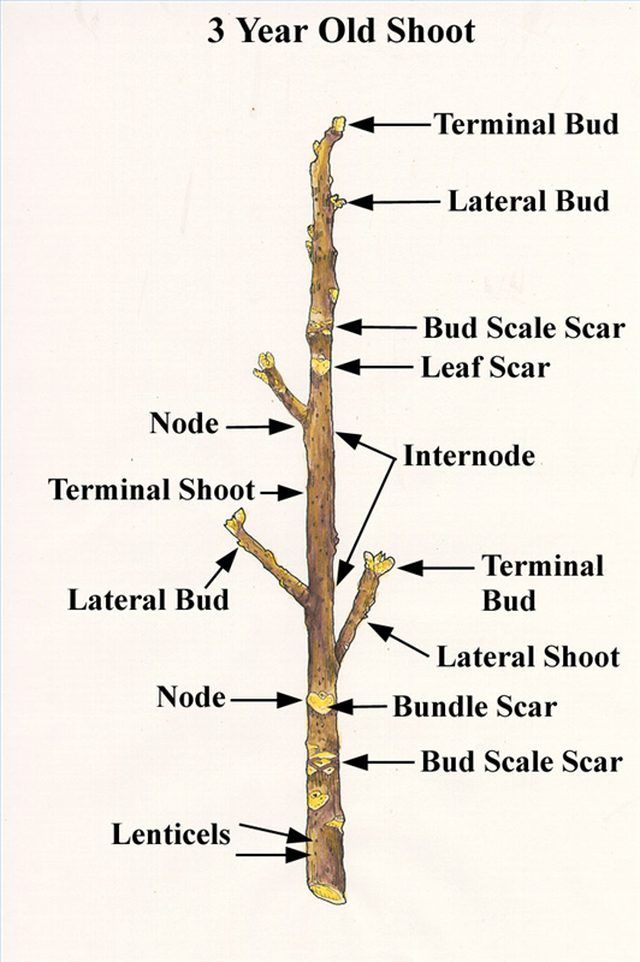
To prune in the open center style, the main terminal bud is pruned back to form two or three lateral shoots. These are allowed to grow out with two or three side shoots bearing spurs. Their length in controlled to keep from dropping and branches are trimmed whenever they cross over another.
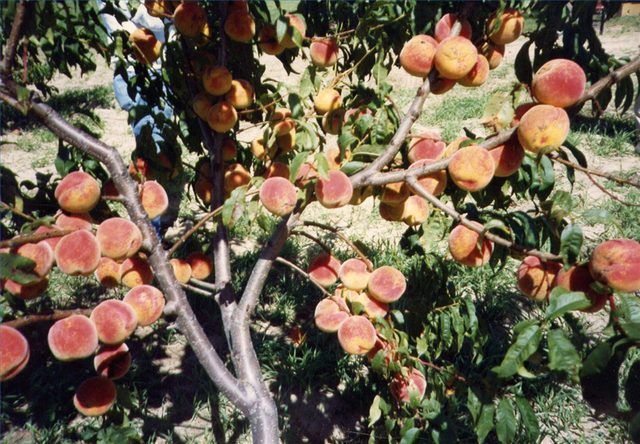
Basic pruning of a dwarf fruit tree is very similar to that of a full-sized tree, only on a smaller basis. Always cut out dead and diseased wood. Trim away any crossover branches or ones that droop down. On severe dwarfs, even the roots will need to be pruned back to keep the tree from growing too much.
Spur prune to keep fruit production controlled and to allow for larger and better quality fruit. In any fruiting tree, do not cut back more than one third of the tree or you will have such extensive and bushy regrowth that your pruning time will really increase.
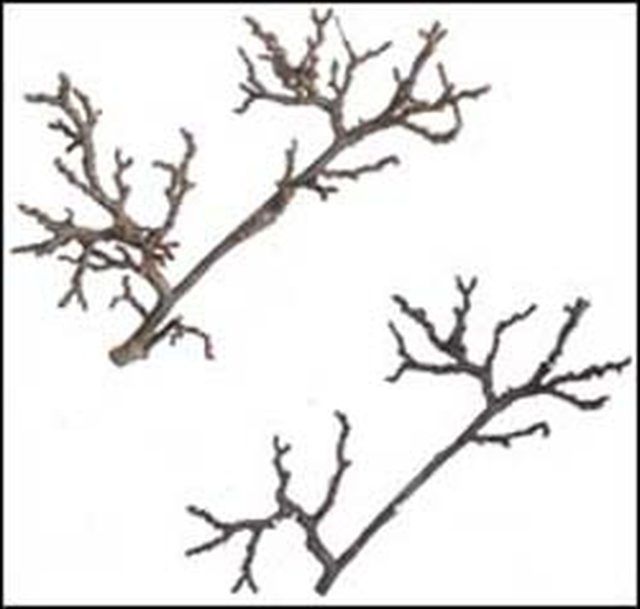
Tips & Warnings
Each fruit variety is a little different in its pruning, so adjust accordingly.
Don't be afraid to cut.